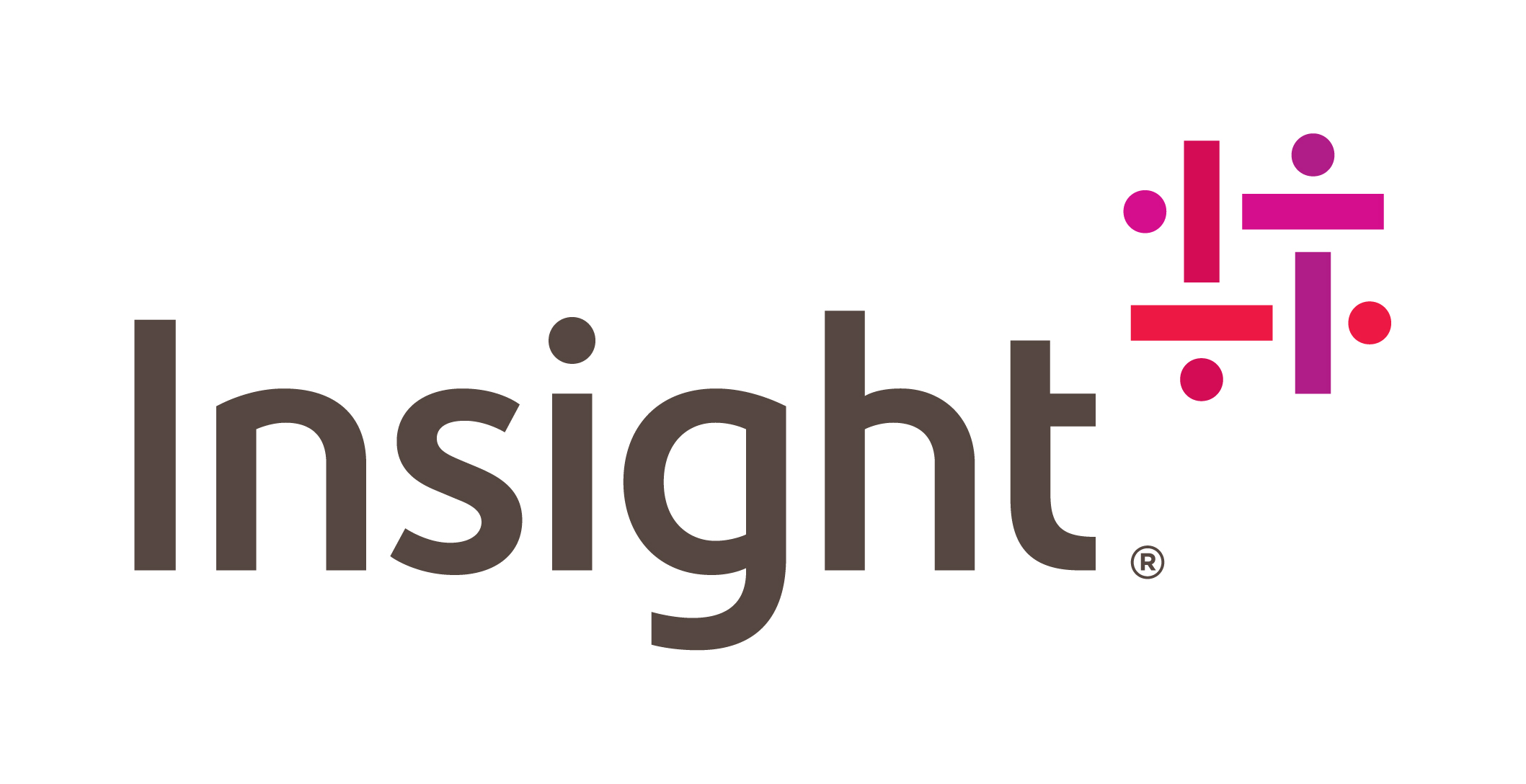Through Insight’s clear project plan and quick rollout, Kravet found Gemini Enterprise is the right foundation for enterprise AI agents, saving hours on search and producing more relevant results.
/ Learn moreFaraday increases AI predictive power 100X by migrating to Google Cloud and following ethical AI practices

/ AT A GLANCE
Faraday moves to BigQuery on Google Cloud, with SADA’s help, improving throughput 100X & increasing experimentation 10X.

INDUSTRY
IMPROVED
INCREASED

The news is filled with stories about Artificial Intelligence (AI) and how it will impact people’s personal and professional lives. Some promise a liberating experience by alleviating the load of repetitive tasks and empowering new creativity. Others paint a more cautionary tale of how AI can run amok.
What makes Faraday different from others in the AI/ML space is their commitment to responsible and ethical AI practices in order to protect people. “Faraday helps our customers detect bias in the AI models they’re building on our platform,” says Seamus Abshere, CTO and Co-founder of Faraday. “We can help diversify their customer base and grow the business by breaking out of existing customer personas.”
Faraday uses AI for consumer prediction. “What that means is that we can predict when people are going to buy things, buy more, churn, try new products, install applications, sign up for loyalty programs, or become VIP customers,” says Abshere. “We also do segmentation, taking customers, leads, and loyalty members and segmenting them based on properties such as, financials, life events, and other responsibly sourced data.”
Business challenge
With their customer prediction volume on the rise, Faraday needed to scale up to keep pace. By 2019, Faraday was processing 98 billion predictions per year when they were hosted on AWS. As they grew, Faraday found that AWS couldn’t support their requirements because the environment was managed in an esoteric and not very transparent way.
“Our clusters were strained to the limit on AWS,” says Abshere. “We were running Citus, a type of horizontally scaled PostgreSQL database, on top of AWS. That worked for a few years, but we ran into scaling problems–both with AWS/ECS and Citus.”
As a software-as-a-service (SaaS) provider, Faraday also depends on the ability of their customers to reach the online service unimpeded. Unfortunately, bad actors sometimes interfere with that process. “Like any SaaS company, Faraday stood up web servers and built our application, expecting customers to come from the public internet, buy our service, and access the application,” says Abshere. “However, there are malicious people out there who want to exploit our web servers.”
Additionally, as a SaaS company selling to Google Cloud customers, Faraday was in search of a way to reduce the friction of the sales process for customers. “Faraday wanted to lower customers’ barriers to entry for our product,” says Abshere. “We wanted customers to focus on our value proposition, not the process of buying it. We needed a gateway for our go-to-market.”
Faraday also sought to accelerate growth in their business in other ways. They needed to scale their marketing faster and maximize the value of partnering with Google Cloud.
Solution
After struggling with AWS, Faraday began looking for a new solution. That’s when one of their lead engineers started investigating BigQuery, Google Cloud’s fully managed enterprise data warehouse. “BigQuery makes our 250 node clusters look like toys,” says Abshere. “We gradually started moving batch processing onto BigQuery, which really increased our ability to iterate and innovate because we could start doing more in terms of SQL. We describe what we want and let BigQuery figure out how to parallelize it.”
After migrating to BigQuery, Faraday was approached by a Google Cloud Field Sales Representative (FSR) about signing a long-term commitment and working with a partner in order to save money and optimize their cloud computing experience. “We didn’t even know about the existence of Google Cloud commitments and Google Cloud Partners,” says Abshere. “Then, as we started to spend more on BigQuery, our FSR reached out to us.”
While setting up a five-year commitment, Faraday selected SADA, a multiple-time Google Cloud Partner of the Year, as their services provider.
SADA was clearly the best partner. The resources that SADA put into the sales process really made me feel confident that they understood what Faraday needed and wanted and what our challenges would be.
Seamus Abshere | CTO and Co-founder of Faraday
During the course of building their customer prediction platform on top of BigQuery, Faraday switched from AWS/ECS to Google Kubernetes Engine (GKE). Then with SADA’s help, they built a Heroku-style branch deployment system to enable developers to continuously integrate and continuously deploy (CI/CD) code for the platform. “SADA engineers worked with us to upgrade our existing CI/CD system in GitHub Actions,” says Abshere. “They also helped design a GKE setup that included dynamic routing, multiple ingress points, and Identity Aware Proxy for certain endpoints, even in the development branch.”
Implement Cloud Armor to mitigate DDoS attacks
To defend themselves from online intruders, Faraday chose Google Cloud Armor to help protect their customer prediction platform against Distributed Denial of Service (DDoS) and web attacks. Configuring Web Application Firewalls (WAFs) and DDoS protections is difficult and tedious. SADA can fast track operational security of public workloads with Google Cloud Armor, building all the component layers of Cloud Armor policies to protect the environment.
“By putting a layer in front of our web servers, Cloud Armor is able to satisfy our auditors that only legitimate requests can get through to the SaaS service,” says Abshere. “If somebody creates a malformed request with a dangerous payload, it’ll fail at the Google Cloud Armor layer.”
Integrate into Google Marketplace to accelerate client uptake
To make it easier for customers to buy Faraday’s customer prediction platform, they decided to integrate it into the Google Cloud Marketplace. The ultimate goal is to enable one-click functionality on the Google Cloud console to install Faraday in the customer’s Google Cloud project and set up usage-based billing, which can be configured to spend against any existing commit. Instead of diverting their developers’ attention from their application work to integrate directly with the marketplace, Faraday reached out to SADA to help them expedite the process.
SADA implemented a layer between the marketplace and our software that takes care of all of the Google Cloud accounting functions. This dramatically lowered Faraday’s barrier to entry so that we can focus on our app’s functionality and deliver value to our customers.
Seamus Abshere | CTO and Co-founder of Faraday
To complete the Google Cloud Marketplace integration, SADA delivered the following services to Faraday:
- Deployment of SADA’s account activation page and order management tool
- Configuration of Faraday’s product pricing and SKU
- Testing and validation of the marketplace listing
- Submission of the marketplace listing to Google Cloud
- Management of the Google Cloud Marketplace review process
- Training for Faraday to manage their marketplace listing
- Publication of the final Google Cloud Marketplace listing
Join SADA’s SaaS Alliance to maximize marketing outreach
Faraday looked to surmount their growth curve by joining SADA’s SaaS Alliance Program. Designed to enable SaaS companies to accelerate growth and maximize their commitment to Google Cloud, SADA began helping Faraday fully harness its power and assisting them in amplifying their marketing efforts.
Impact
Throughput improved 100X
Built on BigQuery, Faraday has nearly unlimited capacity, processing over one trillion predictions in 2022 alone, which amounts to a 100X increase in throughput versus their last year on AWS.
“Once we completed the transition to Google Cloud and BigQuery, Faraday made well over a trillion predictive scores,” says Abshere. “The technology was much more transparent, and there was much less concern over scalability or error recovery logic. We scaled our data processing power by multiple orders of magnitude.”
Experimentation increased 10X
With SADA’s help, the new Heroku-style GKE deployment setup that Faraday uses to deploy code for their customer prediction platform enables them to run 10X more deployments, which increases the chances for innovation.
We constantly test and experiment with the GKE deploy setup SADA helped us with. Iteration is much more straightforward, enabling us to constantly run experiments. Now, at any one time, we might have a dozen copies of our app running, all with different experiments, all running on GKE.
Seamus Abshere | CTO and Co-founder of Faraday
Web security hardened against DDoS attacks
After SADA helped Faraday implement Google Cloud Armor, the SaaS company now has granular control of their cloud posture, using pre-configured WAF rules based on industry standards to provide protection and mitigate against common web-application vulnerabilities. Rate-based rules help protect Faraday’s customer prediction platform from large volumes of DDoS requests that can flood their service and block access for legitimate users. “It’s very easy to put rate limiting in place,” says Abshere. “For example, we can rate limit per API key.”
Pricing published on Google Cloud Marketplace
Now with their Google Cloud Marketplace integration completed, Faraday has achieved their goal of pricing clarity with publicly listed plans available from the Google Cloud Console, with flexibility for customized plans upon request. “Faraday offers transparent, upfront pricing because that helps people evaluate us and our potential value,” says Abshere. “In addition to public pricing, we also have the option to do private offers.”
Existing Faraday customers now can renew their licenses through Google Cloud Marketplace in a streamlined process, and new customers can onboard more quickly due to simpler provisioning. Faraday has also benefited from increased exposure through the
Google Cloud Marketplace and enabled customers to decrease time to value with one-click procurement and deployment.
Marketing outreach maximized in Google Cloud ecosystem
Since joining the SADA SaaS Alliance Program, Faraday has obtained valuable tools to help maximize their marketing outreach within the Google Cloud ecosystem. Faraday now has their logo featured on the SADA partner page, a unique lead generation page, a quick-read one-page promotional flyer, and an episode on SADA’s Cloud N Clear podcast.
Overall, by working with SADA on their Google Cloud solutions, Faraday has been able to:
- Improve throughput by 100X
- Increase experimentation by 10X
- Protect their API endpoints from DDoS by rate limiting requests (e.g., 2/second/API key)
- Reduce sales friction by integrating into the Google Cloud Marketplace
- Maximize their marketing outreach in the Google Cloud ecosystem by joining SADA’s SaaS Alliance Program
SADA has doubled the value of Faraday’s cloud investment because we’re maximizing Google Cloud infrastructure with the guidance of expert SADA Cloud Engineers. A SADA Cloud Engineer sets up more Google Cloud objects in one week than I set up in a year.
— Seamus Abshere | CTO and Co-founder of Faraday
More customer stories
What we're up to
Solve not just for today but for what's next.
We'll help you harness the immense power of Google Cloud to solve your business challenge and transform the way you work.

